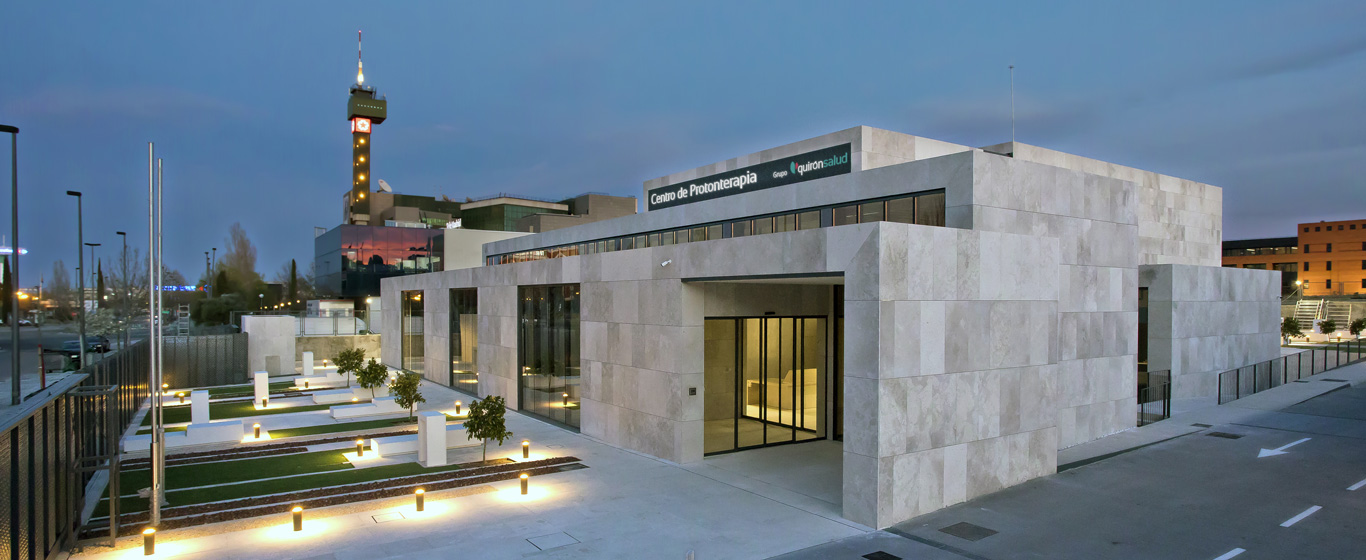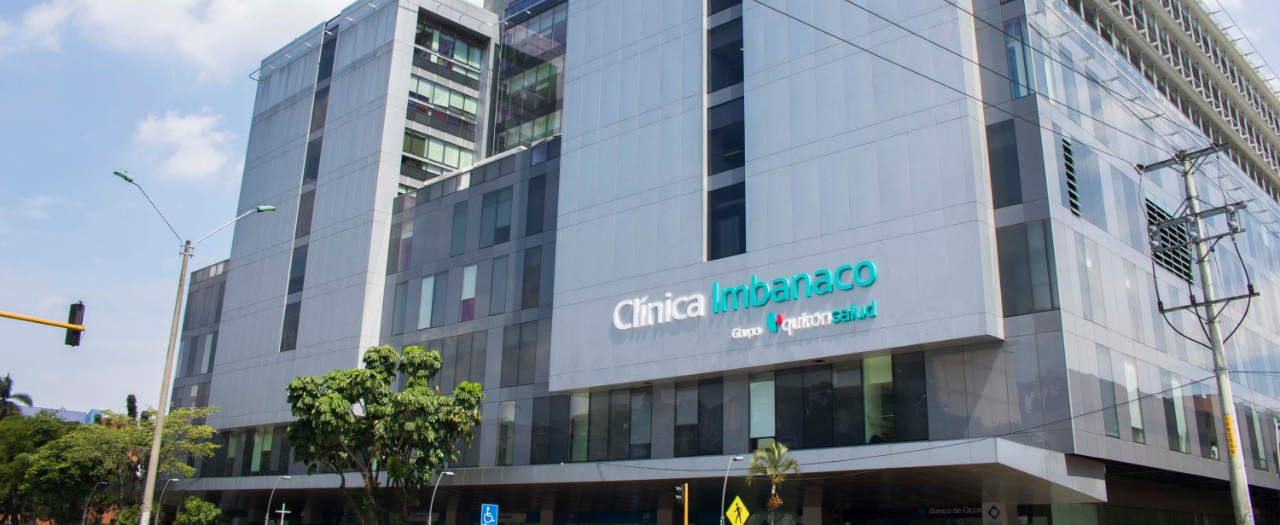Rectal Cancer
What is the life expectancy for rectal cancer? All the information about this disease: causes, symptoms, and treatment.
Symptoms and Causes
Rectal cancer is the formation of malignant tumors in the inner lining of the last section of the large intestine, ending at the anus. Due to their similarities, rectal cancer and colon cancer are often jointly referred to as colorectal cancer, although their treatments differ.
Most rectal cancers are adenocarcinomas, meaning they develop from the epithelial cells of the rectal mucosa. Colorectal cancer is the third most common cancer in men, following prostate and lung cancer, and the second most common in women, after breast cancer. Although it is the second leading cause of cancer-related death, medical advances in early diagnosis and treatment have significantly improved life expectancy.
Symptoms
The main symptoms of rectal cancer include:
- Hematochezia: presence of bright red or very dark blood in the stool.
- Changes in bowel habits: diarrhea, constipation, or more frequent bowel movements.
- Tenesmus: sensation of incomplete bowel evacuation.
- Narrow stools due to the tumor compressing the intestine and restricting normal stool passage.
- Abdominal pain caused by gas, cramps, bloating, or swelling.
- Unexplained weight loss.
- Extreme fatigue.
Causes
Tumors form due to uncontrolled cell proliferation caused by changes or mutations in their DNA. The reason behind these genetic changes is unknown, but it is believed to result from a combination of environmental and hereditary factors.
Rectal cancer often develops from small growths in the rectal lining, called polyps. However, not all polyps turn into cancer. The type most frequently associated with rectal cancer is the adenomatous polyp or adenoma. The risk of cancer increases when there are more than three polyps, their size exceeds one centimeter, and they show dysplasia, an abnormal cell formation.
Risk Factors
Factors that may increase the likelihood of developing rectal or colorectal cancer include:
- Age: usually occurs after age 50.
- Personal or family history of colorectal cancer or adenomatous polyps.
- Inflammatory bowel diseases, such as ulcerative colitis or Crohn’s disease.
- Hereditary disorders, such as familial adenomatous polyposis or Lynch syndrome.
- Previous radiation therapy treatments in the abdominal or pelvic area.
- Excessive consumption of red, processed, or overcooked meat.
- Type 2 diabetes.
- Sedentary lifestyle.
- Obesity.
- Smoking.
- Alcohol consumption.
Complications
The most common complications of rectal cancer include:
- Anemia due to significant rectal bleeding.
- As the tumor grows, intestinal obstruction that prevents stool passage, potentially requiring emergency surgery.
- Intestinal perforation, which also requires surgical intervention.
- Metastasis, especially when not detected early. Cancer spreads through the intestinal wall to the lymph nodes, liver, or lungs, making recovery more difficult.
Prevention
Rectal cancer can be prevented by addressing its risk factors:
- Reducing consumption of red and processed meat while increasing intake of vegetables, whole grains, and dairy products.
- Avoiding smoking and reducing alcohol consumption.
- Maintaining a healthy weight.
- Exercising regularly.
- Undergoing regular screening tests, such as the fecal occult blood test, to detect precancerous polyps. This is particularly recommended for individuals with a family history of the disease.
Which Doctor Treats Rectal Cancer?
Rectal cancer is diagnosed and treated by specialists in Digestive System and Gastroenterology, General Surgery, and Medical or Radiation Oncology.
Diagnosis
Tests performed to diagnose rectal cancer may include:
- Fecal occult blood test: a stool sample is examined to detect blood presence. This test is not conclusive since blood may appear due to other conditions, so additional tests are required if positive.
- Digital rectal exam: a physical rectal examination in which the area is palpated to identify masses or structural abnormalities.
- Colonoscopy or rectoscopy: an endoscope—a long, flexible tube with a camera—is used to examine the inside of the rectum and colon.
- Rectal biopsy: a sample of polyps or any other suspicious tissue found during a colonoscopy is taken and analyzed to determine if it is cancerous.
- Imaging tests: if cancer is confirmed in the rectum, a pelvic MRI, endorectal ultrasound, or thoracoabdominal CT scan may be performed to assess the extent of cancer.
- Blood tests: measurement of carcinoembryonic antigen concentration, a tumor marker. This test is not used to diagnose cancer but to monitor treatment response and detect possible recurrence.
Treatment
Rectal cancer treatment usually involves a combination of surgical and oncological approaches:
- Surgery to remove the tumor. The procedure depends on the cancer’s extent and location.
- Transanal surgery or endoscopic microsurgery: if the tumor is in an early stage, local surgery through the anus can be performed to remove the cancerous cells.
- Anterior rectal resection: if the tumor is located more than 10 to 12 centimeters from the anus, part or all of the rectum, along with surrounding tissue and nearby lymph nodes, is removed. After removal, the colon is connected to the remaining rectum (colorectal anastomosis) or, if the entire rectum is removed, the colon is sutured to the anus (coloanal anastomosis).
- Abdominoperineal amputation: if the tumor is very close to the anus or infiltrates the sphincter, the entire rectum and anal canal are removed. A permanent colostomy is then performed, creating an opening between the large intestine and the abdominal wall, where a bag collects fecal matter.
- Radiotherapy: high-energy beams, such as X-rays or protons, are used to eliminate cancer cells.
- Chemotherapy: drugs that inhibit cell growth are administered, affecting both cancerous and healthy cells.
- Chemoradiotherapy: a combination of both therapies is commonly applied, either before surgery to shrink the tumor or after, to treat metastatic cancer or reduce recurrence risk.
- Targeted therapy: in advanced cancer stages, drugs targeting specific cancer cell markers are administered to inhibit their growth.
- Palliative care: supportive therapy is provided during and after treatment to alleviate cancer symptoms and treatment side effects.











































































